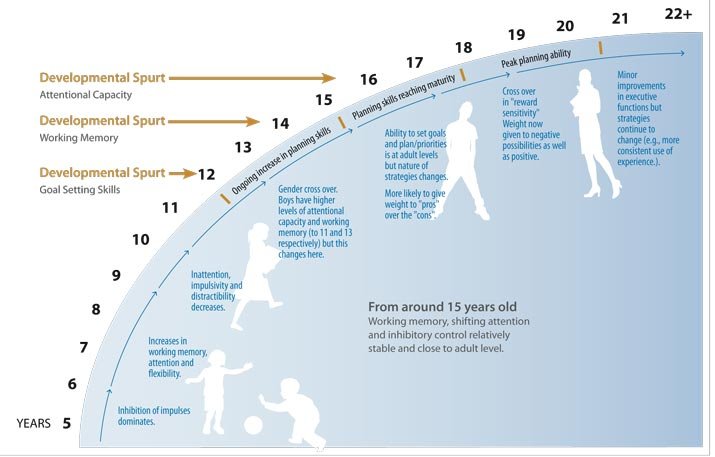EXECUTIVE FUNCTION COACHING FOR ADHD IN OSHAWA
 For Children who live in Oshawa with ADHD, homework can be more than homework. It can represent or trigger a host of insecurities magnifying their weaknesses in the academic setting. This can lead to tendency to give up before they even start, procrastinate or self sabotage the process by engaging in conflict with mom or dad. It’s important to understand the underlying intent against this resistance to homework and academic challenges for the child or teen with ADHD. It’s not that they’re inferior, dumb, stupid, or incapable or many of the things they end up thinking of themselves. On the contrary children with ADHD are extremely intelligent but have executive functioning deficits that make the traditional learning process difficult
For Children who live in Oshawa with ADHD, homework can be more than homework. It can represent or trigger a host of insecurities magnifying their weaknesses in the academic setting. This can lead to tendency to give up before they even start, procrastinate or self sabotage the process by engaging in conflict with mom or dad. It’s important to understand the underlying intent against this resistance to homework and academic challenges for the child or teen with ADHD. It’s not that they’re inferior, dumb, stupid, or incapable or many of the things they end up thinking of themselves. On the contrary children with ADHD are extremely intelligent but have executive functioning deficits that make the traditional learning process difficult
What is Executive Function Coaching or ADHD Coaching in Oshawa ?
Executive function – is the processes within our brain that allow us to focus, pay attention, plan, organize, schedule, multi-task, remember, problem solve, and a host of other life management needs. Some of us take it for granted that we can absorb information, get to meetings to time, and keep our cool when things don’t go our way. For the child or teen with ADHD, and hence an executive Function deficit, this doesn’t come as naturally. Have you ever arrived at a traffic stop only to realize it wasn’t working? And instead, a police officer was standing in the middle of the traffic stop manually directing where each lane should go. Without the police officer navigating traffic, it would be chaos. This should give you an idea of what the ADHD mind can look like when there is an Executive Function deficit. This is the case with most children who have ADHD. But there’s good news. Executive Function can be developed and increased, so children can thrive and succeed through-out their lives. It’s not a handicap, rather its a muscle that one has to exercise and take charge off.
Dimensions of Executive Function
There are three main areas that are considered when we speak of Executive Function. Working memory, mental flexibility, and self-control. These functions work together, and a deficit with one will often mean a deficit with all three. They are interrelated and for executive function to operate effectively, they must coordinate with each other. Each type of executive function skill draws on elements of the others.
- Working memory(traditionally called short term memory) – A child being able to keep information in mind and then use it in some way. A child might use this skill when they are given a formula to apply to a list of questions below the instructions.
- Mental flexibility – is being able to see something in more than one way. A child might use this skill when they are asked to solve a math problem two different ways, or find relationships between two points of view. An open-minded of sorts.
- Self-control –is being able to ignore distractions and resist temptations. A child might use this skill when they choose to not blurt out an answer in class without being asked a question. It helps a child regulate emotions and not act impulsively.
We are not born with these skills, but we are born with the potential to develop them. There are many variables that can impact a child’s ability to develop these skills including early child relationships, attachment issues, social upbringing, stressful environments and others. More serious trauma such as neglect or abuse can seriously impede the development of Executive Function.
Is Executive Function Coaching or ADHD Coaching in Oshawa right for your Child?
Academic Success—Executive function skills helps in a number of areas including helping the child to remember, follow instructions, avoid distractions and temptations, avoid being impulsive, problem solve, become open-minded, manage time. Children who are able to develop Executive Function become more successful academically, have higher self esteem and encourage children to reach their highest potential academically because they believe in themselves.
Pro- Social Behaviors—Executive function help children acquire better interpersonal skills, make better decisions, think more “we “ that “ me”, emotionally intelligent, goal oriented and become greater leaders overall. These- pro-social behaviors will ultimately lead to greater life success and a better contributor to society.
Make Better Choices— A child with Executive function deficit is more likely to take unhealthy risks, yield to temptation like drugs, alcohol or peer pressure. Developing these skills will increase their ability to reflect, to self talk, and to respond
Who is Executive Function Coaching or ADHD Coaching in Oshawa for?
The Positive Kids Executive Function Coaching or ADHD Coaching program in Oshawa is primarily designed for children who have been diagnosed with ADHD, ADD, LD, or struggle with any facet of Executive Functioning. These children need more than a Tutor, they need a coach to help them understand their wiring – and work with it. Because of these deficits in Executive Function, our coaches do more than help with a math problem. We help the children with life- because that is what is ahead of them
The Process
With our program, there is an initial intake with parent and child to review areas of strengths and weaknesses
- As assessment to determine the child’s current level of Executive function
- Review past and present homework routines, habits, teacher comments
- Assign a coach who is a good fit for your child.
- Develop a plan- including schedules, strategies, resources, apps, short term goals for the family
- Revisit plan in 3 months- Reassessed again for Executive Functioning
Our focus is to help the “whole child’develop the necessary life skills to thrive in academically, socially, emotional and psychologically. Our approach is unique and we are the pioneers of Executive Function coaching and ADHD Coaching with children in Oshawa . Your child is a great candidate for Executive function coaching in Oshawa if;
They’ve been diagnosed with ADHD and ….
- Struggle with Organization
- Struggle with Time Management
- Struggle with advocating for themselves
- Struggle with Self Regulation
- Struggle with Interpersonal skills and Socializing
- Struggle with Homework
- Have a hard time retaining information
- Have difficulty transitioning
- Have low self-awareness
- Have Motivational issues
- Get bored very easily
- Become Overwhelmed easily
- Struggle with Prioritizing
- Have difficulty pacing themselves.

